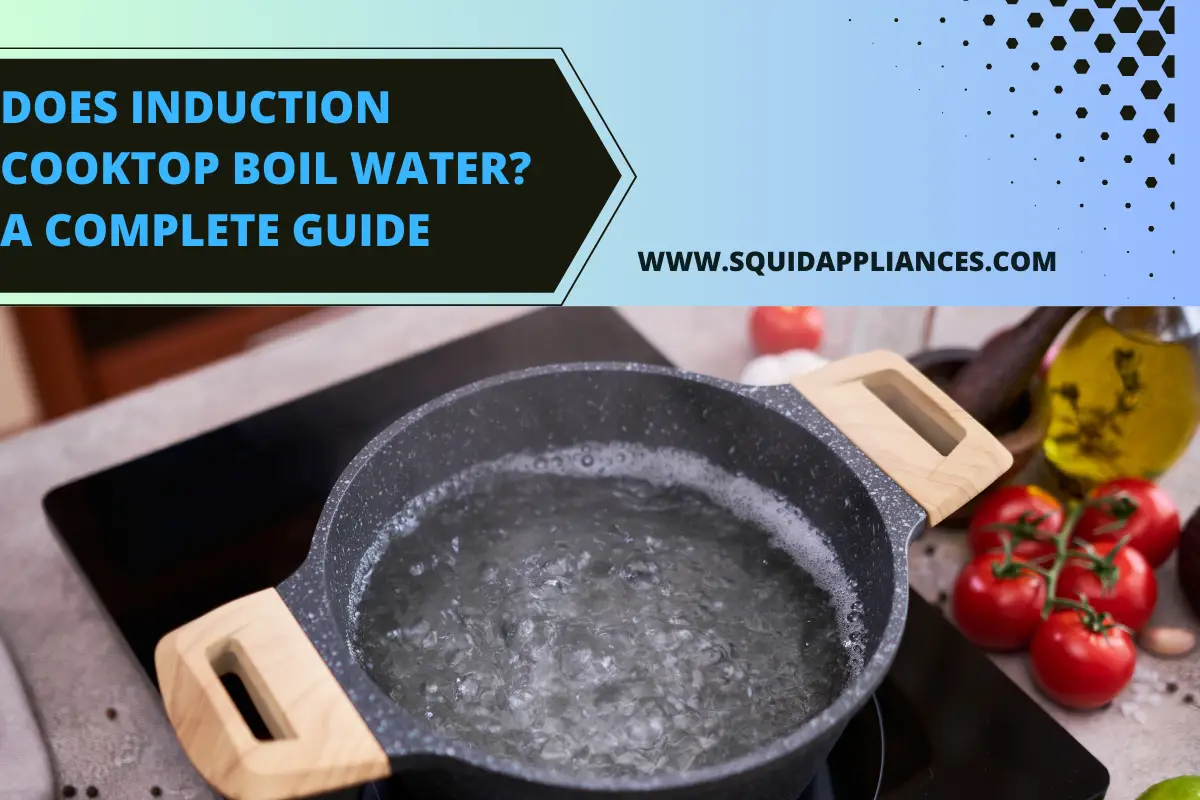Whether you’re a cooking enthusiast, a professional chef, or even a novice in the kitchen, we’ve all pondered over various cooktops and their utilities. Can an induction cooktop boil water?
How does it compare to other methods of cooking? What are its benefits or downsides?
In this comprehensive guide, I’ll take you through the intricate details of induction cooking technology. We’ll explore how effectively an induction cooktop can boil water and how it stacks up against other methods in terms of speed, energy efficiency, and convenience.
Does Induction Cooktop Boil Water?
Yes, an induction cooktop can boil water swiftly and efficiently. Using magnetic fields, it heats directly, wasting less energy compared to gas or electric stoves. It also offers safety features like cool-touch surfaces. Consider induction cookware compatibility for optimal results, and enjoy the benefits of energy efficiency and precision control in your kitchen.
Key Takeaways
- Induction cooktops use magnetic fields to generate heat and require magnetically conductive cookware.
- Induction cooktops are efficient and can quickly boil water.
- Induction cooktops have numerous benefits, including energy efficiency, safety features, speed, and precision control.
- When using induction cooktops, it is important to take safety precautions and use compatible cookware.
Understanding Induction Cooking Technology
Let’s dive right in and figure out how this fascinating induction cooking technology actually works, shall we?
In essence, the role of magnetic fields is crucial. When you switch on an induction cooktop, it creates a magnetic field. This is where induction cookware compatibility comes into play.
The pot must be magnetically conductive to interact with the field and generate heat, thus boiling your water.
Induction Cooktop and Water Boiling
Like a magician pulling a rabbit out of a hat, you’ll find that your kettle heats up in no time on an induction hob. This marvel is due to the energy efficiency of induction cooktops. They heat directly and waste less energy, boiling water swiftly.
But remember safety precautions! Although the cooktop surface stays cool, the pot gets scorching hot. So handle with care, using oven gloves or mittens.
Comparison with Other Cooking Methods
Now let’s shift gears and compare induction cooking with other common methods, specifically gas and electric stoves.
I’ve cooked on all types, and each one has its distinct advantages and quirks.
It’s essential to understand these differences so you can make an informed decision about which cooking method best suits your needs.
Gas Stove
Imagine the familiar hiss and flicker of a gas stove as you place your kettle on its rugged iron grates, waiting for the water to boil.
However, using gas stoves requires strict adherence to gas safety measures. Regular maintenance checks are also necessary.
It is important to be aware of potential leak risks and to have knowledge of proper usage. These steps ensure an efficient and safe boiling process while also prolonging the life of your stove.
Electric Stove
On the other side of the spectrum, you’ve got your electric stoves that not only offer a modern touch to your kitchen but also promise ease of use and maintenance.
| Electric Kettles | Stove Safety |
|---|---|
| Faster boiling than traditional stovetops | Lower risk of gas leaks |
| Easy to clean and maintain | Cool-touch surfaces reduce burn risks |
| Energy-efficient operation | Auto shut-off feature for added safety |
They’re perfect for folks who value convenience and safety in their cooking space.
Benefits of Using an Induction Cooktop
You’ll be amazed at how an induction cooktop can transform your cooking experience with its numerous benefits.
- Energy efficiency: Induction cooktops use heat more efficiently, reducing energy consumption.
- Safety features: These cooktops stay cool to the touch, minimizing burn risks.
- Speed: They heat up and cool down faster than conventional stoves.
- Precision control: You can easily adjust the temperature for precise cooking.
These advantages make induction cooktops a smart choice for any kitchen.
Tips for Using Induction Cooktops
Mastering the use of these innovative stoves can be a breeze with a few handy tips. First, it’s essential to take safety precautions. Always make sure the cooktop is off when it’s not in use.
Secondly, not all pots and pans work on induction cooktops due to cookware compatibility issues. Use pots made of magnetic-based materials like cast iron or stainless steel for the best results.
Frequently Asked Questions
What is the average lifespan of an induction cooktop?
From my experience, an induction cooktop’s lifespan averages about 8–10 years. This can vary based on the quality of your induction cooktop installation and how often you need to factor in cooktop replacement costs.
Are there any health risks associated with using induction cooktops?
While there’s concern about electromagnetic exposure from induction cooktops, I’ve found that safety measures like proper usage and distance can mitigate these risks. However, more research is needed to confirm any long-term health impacts.
Can all types of cookware be used on an induction cooktop?
No, not all cookware material is induction-compatible. Only ferromagnetic materials like cast iron or magnetic stainless steel work on an induction cooktop. It’s crucial to check for induction compatibility when choosing your pots and pans.
How energy-efficient is an induction cooktop compared to a gas or electric stove?
Comparing induction efficiency to gas or electric stoves, I’ve found induction cooktops are significantly more energy efficient. Cost-wise, they can be pricier initially, but they save you money in the long run with reduced energy use.
How do I clean and maintain my induction cooktop for optimal performance?
I use specific cleaning solutions designed for induction cooktops. I’ve set a regular maintenance schedule, ensuring no food residue is left behind and the surface stays scratch-free for optimal performance.
Conclusion
Like Aladdin’s magic carpet, my induction cooktop has transformed my kitchen experience. It certainly boils water—and so much more! Compared to other cooking methods, it’s efficient, fast, and safe.
With a touch of nuance and understanding, this technology can elevate your culinary journey. So yes! Embrace the future with an induction cooktop; you’ll wonder how you ever managed without it.






